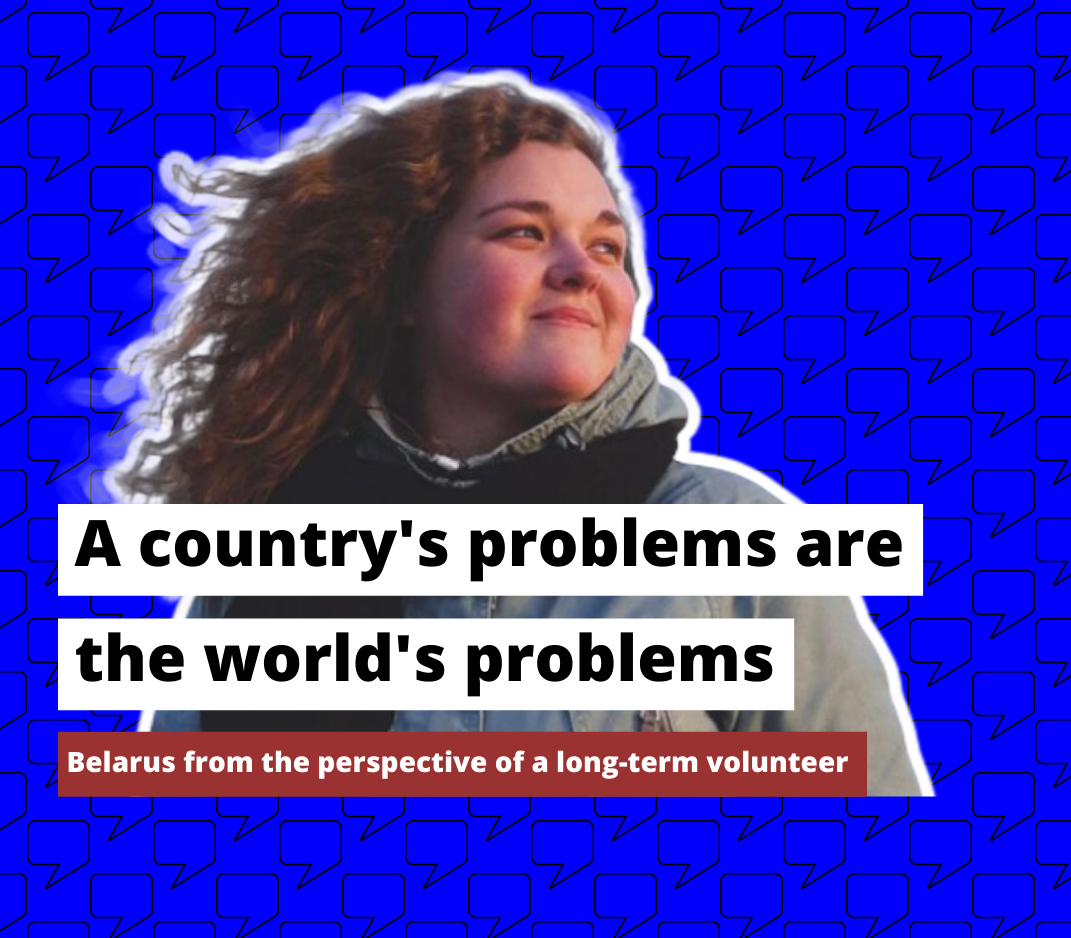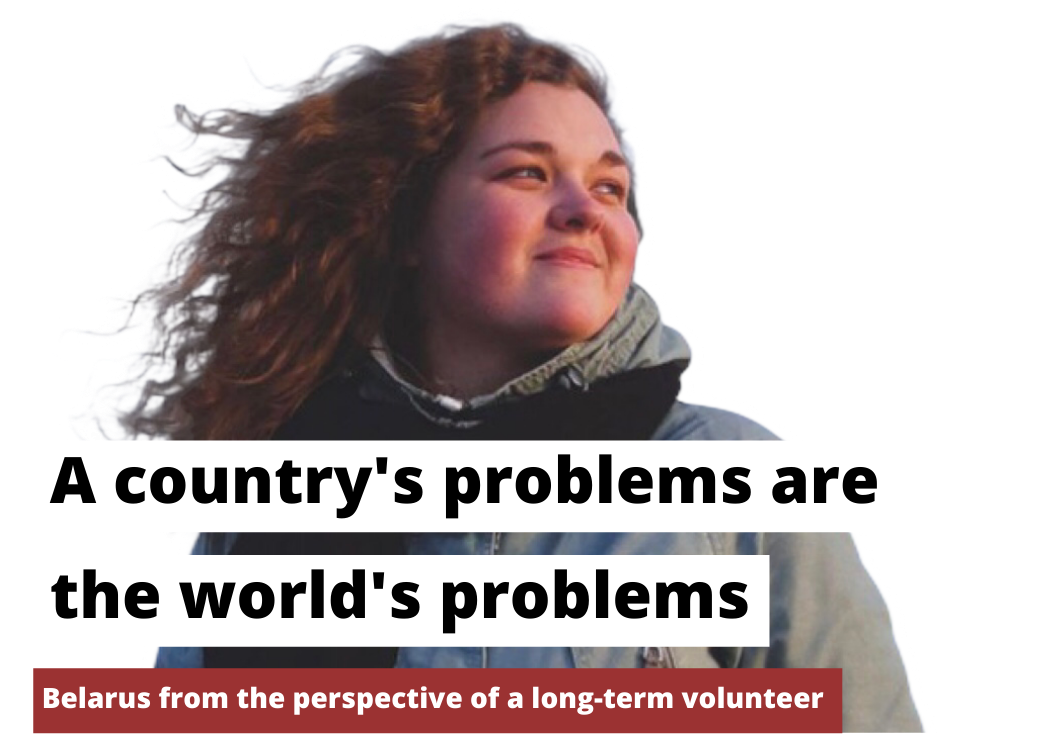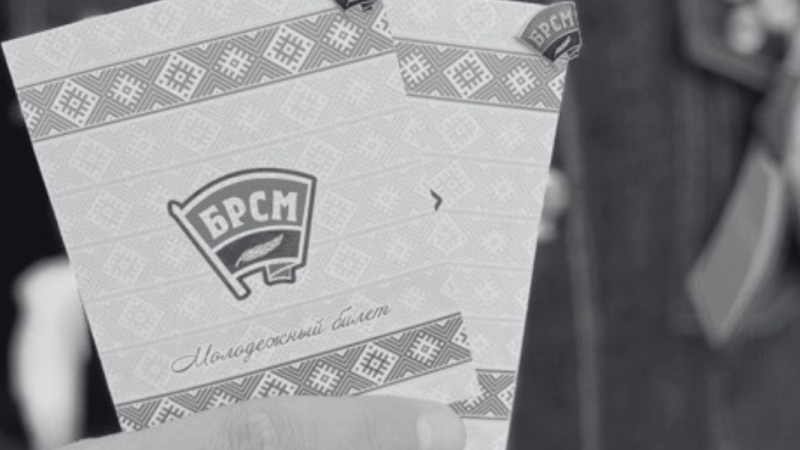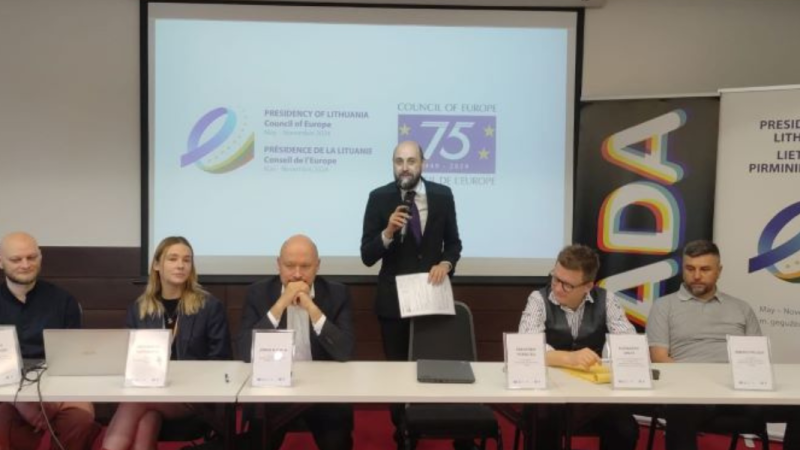“A country’s problems are the world’s problems”

Maryna Nikifarenka is a long-term volunteer of the European Solidarity Corps in Belgium and works for YFU there. Maryna is a representative of The public association “Center for information support of public initiatives “Third sector” (member of the Belarusian National Youth Council “RADA”). She keeps in touch with family and friends and campaigns for changes in her home country. At the same time, she would like to see more opportunities for young people from Belarus and the European Union to meet. IJAB talked to her about it.

ijab.de: Maryna, you work for the Flemish branch of Youth For Understanding – YFU. How are you doing there?
Maryna Nikifarenka: I’m with YFU for a year as a long-term volunteer through the European Solidarity Corps. When I arrived in Belgium, I wasn’t expecting the events in Belarus. I was shocked by the fraudulent elections. Now it’s very difficult for me to be here knowing that my friends at home are out on the streets every day and risk getting arrested or beaten up. I feel helpless. All I can do is spread information about the situation in Belarus and hope that someone will notice it. People need to know what is happening because in a globalized world, one country’s problems are the world’s problems.
ijab.de: Are you in touch with friends and family?
Maryna Nikifarenka: Yes, of course. I keep in touch with my friends, family, colleagues from my sending organization NGO ‘Center “The Third Sector” and the people of RADA – the National Youth Council of Belarus – and follow the news.
ijab.de: Do you have any contacts with the Belarusian diaspora in Belgium? In Germany, the diaspora organizes solidarity rallies every weekend in the larger cities.
Maryna Nikifarenka: No, I haven’t met any other Belarusians here. I only saw people with white-red-white flags standing in front of the European Commission building when Svetlana Tichanovskaya, who won the elections in Belarus and now heads the Opposition Coordinating Council, was there to visit to meet the foreign ministers of the EU countries. I once stood in front of the European Parliament with a poster to draw attention to our situation and I was hoping that others might join me. But someone from the administration just came out and told me to go.
ijab.de: What do your friends tell you from home? How are you dealing with the situation?
Maryna Nikifarenka: I don’t know anyone who supports Lukashenko. As for my friends, they are falling into two camps right now: those who want to fight to the end and those who cannot risk much because of their families and their jobs. It’s tough for them. Those who fight are exposed to mood swings. One day they are confident that Lukashenko will soon disappear, the next day the mood drops again. I also have these tendencies while watching the news.
ijab.de: You are a long-term volunteer in Belgium. What about youth exchanges between Belarus and Europe?
Maryna Nikifarenka: There are of course the students who come to Europe via Erasmus + to study here. But this is rarely promoted by the universities in Belarus, because the government doesn’t like it when young people go abroad. There is also no government program that would support stays abroad. Apart from the students, there are only about ten organizations that send young people abroad and they have great difficulties even with finding the participants for small exchanges. For example, I’m volunteering in the Belarusian NGO “Center “The Third Sector” which has a quality label for sending young people to exchanges and long-term projects. And even when we have very interesting projects it’s always hard to attract enough participants.
ijab.de: Would you like to see more exchanges?
Maryna Nikifarenka: Yes of course – learning something is always important. The European Solidarity Corps is a good thing, and a Masters degree from a European university isn’t bad either.
ijab.de: And vice versa? Shouldn’t young people also travel to Belarus?
Maryna Nikifarenka: Of course! I would be happy if more young people came to Belarus. But there is also a problem with the language: our universities do not offer courses in English. By the way we also host volunteers from Europe in Belarus via European Solidarity Corps program. Previous year in “the Third Sector” we had 3 volunteers from Austria, Germany and Poland for a year project. it is of course always important to learn that you can not only do things in the one way you already know, but that there is always another way.
ijab.de: You are addressing an important point. What can young people learn there when they go to Belarus?
Maryna Nikifarenka: You can learn a lot in Belarus, as you can see right now during the protests. Patience is one of our strengths. We trust one another, are not suspicious and show solidarity with one another. We are flexible in what we do and we seize the opportunities that arise. We say when we disagree without breaking the law. People are well self-organized and do not respond to police provocations – even when large crowds have gathered. It’s different from, for example, America.
It has often been said of us that we are individualists who only care about ourselves. But now people are cooperating in neighborhoods and apartment blocks, many people provide professional help for free (lawyers, psychologists and etc). There are local and regional chats for discussion. I am in such a chat for the city of Mahilyow. I didn’t ever see people arguing or quarrel but always act together and help each other. You can learn all of this in Belarus.



